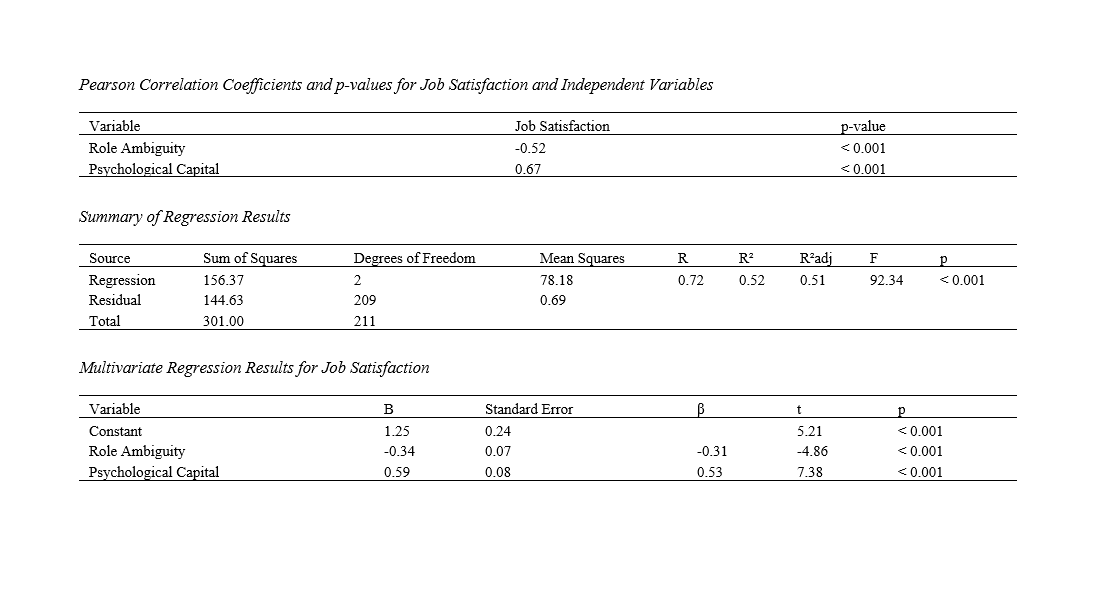Role Ambiguity, Psychological Capital, and Job Satisfaction: An Empirical Analysis
Keywords:
Job Satisfaction, Role Ambiguity, Psychological Capital, Employee Well-being, Organizational Behavior, Cross-Sectional StudyAbstract
This study aims to investigate the relationships between job satisfaction, role ambiguity, and psychological capital among employees. Specifically, it examines how role ambiguity negatively impacts job satisfaction and how psychological capital positively influences job satisfaction. Understanding these relationships can provide valuable insights for organizational strategies to enhance employee well-being and performance. A cross-sectional design was employed, with data collected from 212 participants across various organizations. The sample size was determined using the Morgan and Krejcie table to ensure adequate statistical power. Participants completed validated scales measuring job satisfaction, role ambiguity, and psychological capital. Data analysis included Pearson correlation to examine the relationships between variables and linear regression to identify the predictors of job satisfaction. All analyses were conducted using SPSS-27. Descriptive statistics indicated moderate to high levels of job satisfaction (M = 3.75, SD = 0.82) and psychological capital (M = 4.12, SD = 0.75), and moderate levels of role ambiguity (M = 2.45, SD = 0.91). Pearson correlation results showed a significant negative relationship between role ambiguity and job satisfaction (r = -0.52, p < 0.001) and a significant positive relationship between psychological capital and job satisfaction (r = 0.67, p < 0.001). Regression analysis revealed that role ambiguity negatively predicted job satisfaction (B = -0.34, β = -0.31, p < 0.001), while psychological capital positively predicted job satisfaction (B = 0.59, β = 0.53, p < 0.001). The study confirms that reducing role ambiguity and enhancing psychological capital are crucial for improving job satisfaction among employees. These findings align with existing literature, emphasizing the importance of clear job roles and strong psychological resources in fostering a positive work environment. Organizations should prioritize role clarity and invest in developing psychological capital to boost employee satisfaction and overall organizational performance.
Downloads

Downloads
Additional Files
Published
Submitted
Revised
Accepted
Issue
Section
Categories
License
Copyright (c) 2025 Sharmin Nasrin (Corresponding Author)

This work is licensed under a Creative Commons Attribution-NonCommercial 4.0 International License.

















